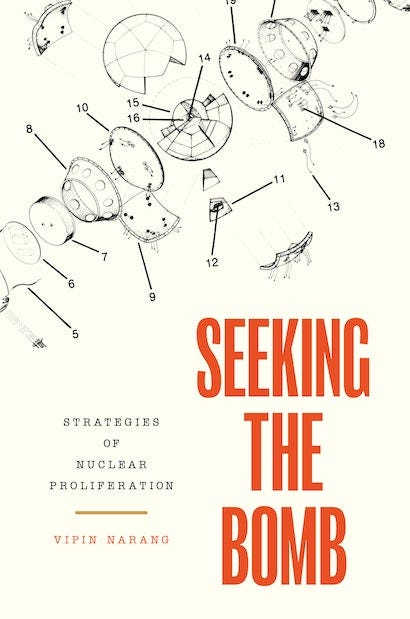Thank you so much to everyone who sent me questions in response to yesterday’s AMA. That was hugely helpful. I enthusiastically recommend this exercise to anyone suffering from a similar sense of authorial malaise. I’ve been cheerfully replying to your questions all day, as you’ll see below, and I’ve barely even thought about the midterms.
I still haven’t got through them all. In fact, I don’t think I’m even halfway. But I will get to them. All questions will be answered.
Here’s the first half—and since this is really quite long, I’ve provided an index so you can skip to your question.
I’ve assumed that if you asked your question in the comment section, it’s okay to use your name. If you mailed it to me, however, I assume you prefer to be anonymous.
I’ve edited some of the questions slightly for clarity and because it physically pains me to publish a usage that violates our Style Sheet. (If you’d like a copy of that Style Sheet so that you, too, can follow it, let me know.)
Today’s answers:
The Architectonic Theory of Justice
Rachel Motte: What is justice?
Claire: Would I be right to suspect you’ve been reading Plato’s Republic? I’ll discuss The Republic, in any case, because Plato is always a good place to start.
Plato was vexed by problems much like the ones we confront. When he wrote The Republic, Athenian democracy was on the verge of destruction. Its politicians were incompetent, meddlesome, and selfish; its citizens ignorant and quarrelsome. Its wars had led to disaster. Its rulers had divided Athens into mutually hostile camps. Having seen two oligarchic revolutions and the rise of powerful demagogues, Athenian intellectuals feared subjugation by a tyrant.
Justice, in Plato’s view, was the quality required to save Athens from decay and ruin.
Thus Socrates asks Cephalus, Polemarchus, Thrasymachus, and Glaucon to define justice.
Cephalus—who represents the traditional morality of the old Greek trading class—proposes a traditional theory of justice: “Justice consists of speaking the truth and paying one’s debts.”
Polemarchus largely agrees. Justice, he says, consists of doing good to friends and harm to enemies.
Thrasymachus, representing the pompous and blustering sophists, proposes that justice is a sham. There is no such thing: Might makes right. “Justice is nothing else than the interest of the stronger.” Laws are made by the ruling party to serve its own interests. (The idea that our postmodernists and critical theorists have happened upon new and original ideas just slays me.)1
Glaucon puts forward something very much like social contract theory: “Justice is the interest of the weaker,” not the stronger. It is in everyone’s interest to live in a just society, he offers, because justice is a form of social organization that prevents the strong from preying on the weak. Justice, in his view, emerges from fear. People are just only under compulsion.
Socrates rejects these definitions. All, he notes, treat justice as something external—“an accomplishment, an importation, or a convention, they have, none of them carried it into the soul or considered it in the place of its habitation.” But in fact, justice resides in the human soul. It is a moral, not a legal concept. Nor is justice socially constructed; it is a natural quality. It is not born of the weak’s fear of the strong, but of the longing of the soul to do its duty in accordance with nature. “Justice in the life and conduct of the State,” therefore, “is possible only if it first resides in the hearts and souls of the citizens.” In an ideal state, justice is visibly embodied: The state is physical manifestation of the idea of justice.
Every soul, Socrates continues, comprises three elements: appetite, spirit (or emotion), and reason. A man is just when each of these elements is fully expressed in his personality without working to the detriment of the others. Justice thus plays the role of an architect, ensuring that all of these elements function in harmony. (Hence his theory of justice is said to be architectonic.)
In every man, Socrates holds, one of these elements is dominant. His rights and duties devolve from the dominant element. In a just society, those dominated by intellect—those who love wisdom and truth—compose the ruling class. Those dominated by spirit—those who love victory and honor—are the warriors. The rulers and warriors, together, are society’s guardians. Communism must govern this guardian class: Its members should be permitted no private property, and their children should be raised by the state. This will ensure they are tempted neither by money nor the prospect of personal advancement.
Those dominated by appetite—who love profit and money—are to be the producer class—specifically, artisans and farmers.
A man is just if he performs the duties nature has ordained to him. When rulers, warriors, and producers perform the tasks to which they’re suited, you will have a just order.
A just polity is harmonious. Everyone performs the job to which he is naturally suited without interfering with others: “Justice is the will to fulfill the duties of one’s station and not meddle with that of another station.” Its social classes reflect the tripartite division of the individual soul. Every man and class must be in its proper place. The ideal society is also radically meritocratic and egalitarian: No one is assigned to a class by virtue of birth, wealth, or even gender. One’s talents determine one’s place.
In an unjust society, the wrong people do the wrong jobs.
My view? Many have criticized his account, for all the obvious reasons. Most of the criticism is fair enough; as you’d expect, I don’t share the view that an ideal polity would be one in which rulers hand their children over to the state.
But he was right about the following propositions:
Justice is real.
It resides in the human soul.
A state will only be just if its citizens are just. “States are as the men are; they grow out of human characters.”
A just state will be harmonious.
It is better to be ruled by rational men who cherish wisdom and truth than to be ruled by avaricious and impulsive imbeciles.
While it’s only obliquely relevant to his concept of justice, Plato’s account of the fate of democracies seems pertinent today. He’s no enthusiast of democracy—“a pleasing, lawless, various sort of government, distributing equality to equals and unequals alike,” a system in which no one is in his proper place.
Tyranny, Socrates argues, “springs from democracy” owing to the excess of freedom engendered by this form of government, and “this exclusive love of freedom and regardlessness of everything else, is the cause of the change from democracy to tyranny.”
Ultimately, owing to the surfeit of freedom,
the citizens become so sensitive that they cannot endure the yoke of laws, written or unwritten; they would have no man call himself their master. Such is the glorious beginning of things out of which tyranny springs .... the excess of freedom passes into the excess of slavery, and the greater the freedom the greater the slavery.
Could be, no?
The rich, in such a society, will come under attack, for any inequality is intolerable. The demos will vote to spread the wealth of the rich about until they’ve emptied the treasury: “Their leaders deprive the rich of their estates and distribute them among the people; at the same time taking care to reserve the larger part for themselves.” Trust in authority atrophies and “the state falls sick, and is at war with herself.”
Then come impeachments and judgments and trials of one another.
True.
The people have always some champion whom they set over them and nurse into greatness.
Yes, that is their way.
This and no other is the root from which a tyrant springs; when he first appears above ground he is a protector.
Yes, that is quite clear.
So there we go. The remedy is for us to be more just.
On painting furniture
Rachel Motte: What color did you paint your furniture?
Claire: I thought you would never ask!
Here’s my Louis Quinze commode. Now, this isn’t truly a Louis Quinze—it doesn’t have the classic Louis Quinze rounded midriff. But I thought it had Louis Q. legs and a sort of overall Louis Q. aspect—and besides, I had a deadline—so I therefore dropped everything to rush across town to collect it.
As you can see, he was in rough shape:
But after spending a happy day spent avoiding gainful employment, I’m pleased to report that I’ve coaxed my little Louis into a splendid recovery. He’s very happy in his new home:
But wait, there’s more! This fellow on the left was free. The owners just wanted it out of their apartment. (The dresser, I mean. The cat was free, too—it’s amazing what invaluable treasures people will just discard.)
Now (after a day spent not writing an article for Politico), the jolly little lad looks like this:
Here are a few views of the sides, which I découpaged:
(Do you see the distressing?)
But wait, there’s more! Strictly speaking, a mirror isn’t furniture, but for procrastination purposes, a mirror is just as good as a full dining room set. You see, I wanted a huge, ornate, restoration-era wall mirror—one of those numbers with floral decorations and gold leaves and old-rose patina? Something super-dramatic. I couldn’t stop looking at photos of the kind of mirror I wanted on Pinterest. But what I could afford was this:
That is not, by the way, my ugly orange couch, it’s the previous owner’s; and clearly the previous owner had awful taste, because she gave that mirror away for forty euros, completely unaware of its secret inner life as this mirror:
A few licks of chalk paint, some plaster, a bit of gold leaf, and now it’s the belle of the mirror ball, able to hold its head high among Pinterest’s finest.2
Japanese foreign policy
Norman: Kindly discuss the current trajectory of Abeism as it relates to Japanese foreign policy and the degree to which this trajectory is influenced by shifting public opinion.
Claire: This one requires its own newsletter—which you shall have—but here’s some reading that might interest you:
Japan’s foreign policy: Abe’s legacy. The Institut Montaigne (they’re excellent) interviews Yuichi Hosoya of Keio University:
… I think that the next Prime Minister will be able to use the National Security Council and National Security Secretariat very effectively. Suga Yoshihide is not known to be strong in foreign and security policy, and he will have to rely more on the National Security Secretariat than Abe did towards the end of his term. Therefore, Suga’s foreign policy will probably be influenced by the Secretariat, and in that sense Japanese foreign policy will stay on the same course. Suga should be expected to continue the same policies, but perhaps with less self-confidence. He is not a strategic thinker like Abe. He is extremely pragmatic and flexible, and skilled at controlling bureaucrats, whom he listens to. If he chooses the right individuals in his team of advisors, his foreign policy will be more effective in striking a balance than Shinzo Abe’s.
Suga has strong support from the LDP, but he has never won a general election. He needs to win one and increase the LDP’s seats in the lower house. Support for Suga is quite broad, and it comes from many factions. The challenge for him will thus be to coordinate the different interests of these factions, and he will have to listen to individual requests and demands coming from all of them. If he can win a general election, he will have much more power to control these factions. Until that day, Suga’s foreign policy should be expected to be careful in maintaining the previous course without any radical changes. If he wins the general elections, he will have much stronger confidence to implement his own foreign policy.
Japan’s political stability depends on a minor party’s leverage. The small pacifist Komeito party is managing rifts with its coalition partner:
Under Abe, the LDP pushed the “Abenomics” program that promoted growth and greater economic efficiencies, while the Komeito is focused on supporting the lagging small business sector and working class families largely left behind as big companies and shareholders saw increasing wealth.
The split is also increasingly evident in foreign policy. Komeito is founded on Japan’s principle of postwar pacifism and has historically maintained good relations with China. With Beijing’s increasing assertiveness and fast-growing military power, both views are less popular, especially among the post-World War II generations who were not raised in the shadow of Japan’s wartime aggression and subsequent downfall. These policy differences have led to compromises on both sides. From Komeito’s perspective, Komeito is the reason that the LDP maintains its overwhelming support despite having been in power for more than a decade.
BOOK REVIEW | “One Hundred Fifty Years of Japanese Foreign Relations: From 1868 to 2018,” by Sumio Hatano. A comprehensive must-read for a deep and accurate understanding of Japanese foreign relations, written by distinguished historian Sumio Hatano:
For those interested in Japan’s diplomacy and the history of its interaction with the world, a massive new volume titled One Hundred Fifty Years of Japanese Foreign Relations: From 1868 to 2018 is out and available. It may be one of the best textbooks I have ever seen. But it is more than a textbook. Based on primary documents and the academically rigorous secondary sources by leading domestic and international scholars, the 543-page survey will be a valuable companion to have for understanding Japan's foreign relations and the statesmen who helped lead the country.
BOOK REVIEW | “Line of advantage: Japan’s grand strategy in the era of Abe Shinzo,” by Michael J. Green:
Green knows Japanese foreign policy like few others. Shinzo Abe, who served as Japan’s prime minister from 2006 to 2007 and again from 2012 to 2020, reoriented Tokyo’s strategy in a way that will persist, despite his tragic assassination in July 2022. Proactive rather than reactive, he created the concept of a “free and open Indo-Pacific” that became part of American thinking; strengthened military cooperation between the two allies; consolidated the quasi-alliance of Australia, India Japan, and the United States known as the Quad; and resuscitated Washington’s abandoned trans-Pacific trade pact in the form of the Comprehensive and Progressive Agreement for Trans-Pacific Partnership (which the United States has yet to rejoin). These initiatives reflected a “maritime and cosmopolitan” approach that aims to secure Japan’s access to the surrounding oceans on the basis of rule of law and free commercial transit. In Southeast Asia, Abe advanced a “values-oriented diplomacy” and positioned Japan as a trusted partner of countries seeking to hedge against China. At home, he embedded his vision in a strengthened security establishment. Despite its failure to bridge intractable differences with South Korea, Japan today “arguably has the clearest conceptualization, consensus, and implementation of a grand strategy of any of the democracies confronting Chinese hegemonic ambitions in the Indo-Pacific.”
The real China hands. What Washington can learn from its Asian allies:
In waking up to the threat of China, Washington was far behind its most important allies in Asia, especially Japan. Back in 2013, as Washington anticipated a closer partnership with Xi, Japanese Prime Minister Shinzo Abe’s government released a strategy for longer-term competition that was based on assumptions about Chinese behavior that are now widely accepted in US policy circles. Abe’s controversial views on Japan’s own history—he had argued that Japan was often unfairly criticized for its conduct during World War II—made him look to many in Washington like an unwelcome spoiler in US-Chinese relations. Beijing sought to exploit those doubts by targeting him with a global media campaign. (In one of the more histrionic episodes of Beijing’s relentless campaign, the Chinese ambassador in London went so far as to write an article for The Telegraph comparing Abe to the evil Lord Voldemort from the Harry Potter books.) But Abe persisted with his strategy. He had been returned to power by a ruling Liberal Democratic Party looking to reset relations with Beijing after years of embarrassing Chinese incursions around the Japanese-administered Senkaku Islands (known in China as the Diaoyu Islands). Abe understood full well what Washington was only beginning to realize: that China’s leaders judged both the United States and Japan as being in precipitous decline. He intended to change that perception.
Only Shinzo Abe’s disciple Sanae Takaichi can save Japan:
After Shinzo Abe’s demise, Japan has failed to find his true heir. A leader who can show and assist Japan in treading the path to its resurgence. A leader who has an independent foreign policy and stands up to its main aggressor China. But after a few months of his demise, a name has surfaced. It’s Sanae Takaichi.
Due to her rising popularity, Sanae Takaichi, the lawmaker from Nara was appointed as Economic security minister by Prime Minister Fumio Kishida. Takaichi is a China leader hawk who gained the nickname “The Iron Lady” in some Japanese media for her ardent support of the late British prime minister Margaret Thatcher.
An interview with Japanese Defense Minister Yasukazu Hamada: Faced with North Korea’s rapid missile development, “We will consider all defense options, including the so-called counterstrike capability.”
Japan considers clarifying Abe’s diplomatic legacy in security guideline.
The mixed legacy of Abe Shinzo’s foreign policy. “Diplomacy with panoramic views was not without its problems, and the consequences of these issues are more acutely felt in the era of intensifying great power competition and the erosion of the liberal international order.”
Iran’s future
D. Meges: Would you say more about Iran? How and why do regimes fail or fall—in theory and in practice? Will the protests continue? What are the prospects that these protests result in real change? What are the implications if Tehran reforms and changes meaningfully? Reduced sanctions? Reduced instability? More oil being sold through official channels?
Claire: This definitely requires its own newsletter, but here are a few thoughts. First, the protests are definitely going to continue. I reckon this is only the beginning. New protests just erupted at universities over the weekend, and in the Kurdish northwest, too, despite the brutality of the crackdown.
One reason this is different from previous protests is how broad these protests have been—across social classes, in universities, in the streets, in the schools, in every region of the country. This isn’t just the urban elites. Iranians, of every social class, everywhere in the country, have had it.
Another big difference is that previously, demonstrations were aimed at securing specific reforms. Not these. Their sole objective is toppling the regime, tout court. There’s a new trend now: Young people are walking up to clerics in the street and pushing their turbans off their heads. This is a regime that’s completely lost legitimacy.
Here’s a map of the protests. And here are videos from this weekend.
The prospect that these protests will result in real change is very high—but Shay Katiri is surely right that the “real change” could be a civil war that makes Syria look like a bagatelle. (Did you listen to our podcast? If not, make sure to listen to it. I learned more from that conversation than I have from reading almost any article that’s been published recently.)
The regime’s elites know they’ve got to put these protests down or they’ll die, perhaps the way Qaddafi did. So they’re going to try to put them down no matter how many innocent people they have to kill. They’ve already arrested thousands of protesters and put them on trial on death-penalty charges, such as “enmity against God” and “corruption on earth.” They are not going to decide, as Gorbachev did (after killing quite a few Lithuanians, mind) that it would be better for their regime to end than to shed the amount of blood sustaining it would require.
The larger question of why regimes fall is an interesting one. There’s a huge literature on this. I’ll treat that in a longer reply. (Famously, in November 1978, the CIA Tehran Bureau told Washington that Iran was “not in a revolutionary or even a pre-revolutionary situation.”)
But one question we might ask is this: Suppose there are rules that have historically governed the fall of regimes—a formula that more or less tells us which ones are likely to fall in response to an uprising and which aren’t. Does that formula still apply? Or does surveillance of the kind China has pioneered make it harder, or impossible, to topple a hated regime? It’s a dismal thought, but it could be true: China may have developed a new form of totalitarianism from which there’s no imaginable escape. It’s too soon—much too soon—to say, but it’s not outside the realm of possibility.
The regime has brought in Beijing to help them with eavesdropping technology and facial recognition to track the protesters. It will be, I suppose, interesting to see whether this technology is a match for a protest movement of this scale. Beijing certainly wants to know.
Here are some articles you might find helpful:
Suddenly, a more sober European turn on Iran:
For decades, European officials have been the most ardent proponents of engagement with the Islamic Republic, believing that trade and diplomacy would help moderate Tehran’s rogue behavior. Over the past couple of years, this has taken the form of feverish advocacy in favor of reviving the 2015 nuclear deal between Iran and the West—a foreign policy priority that the Biden administration shares. Yet recent days have seen something of an about-face from Brussels, where attitudes toward Iran seem to be hardening amid a growing recognition of Iran's deeply problematic policies at home and abroad.
One reason for the policy shift is the ferment taking place inside Iran. … More central to Europe’s calculus, however, has been Iran’s growing involvement in Ukraine … the Iranian regime has waded into the most consequential European conflict in more than half a century, and officials there have taken notice. In the wake of the Islamic Republic’s meddling, officials like EU foreign policy czar Josep Borrell increasingly recognize that they have been played for fools. Opinion in Europe is beginning to sour on the idea of re-engagement with Iran. The resulting message is clear: The Islamic Republic, which has long operated without fear of meaningful consequences from Europe, might have at long last crossed the Rubicon.
Iran nuclear deal “has no future,” says senior German coalition party official.
Iran’s protests fuel ethnic tensions. Hardline politicians fear lengthy unrest makes the country vulnerable to threats from separatists and Islamist insurgents. (Listen to Shay on this point.)
A roadmap towards confederalism. An interesting vision of one way forward if the regime falls.
The next generation of Iranian women dare to imagine a future with freedom. This is what they want us to see.
Do Europeans think there are 300 genders?
Jon Hepworth: Is “gender education”—with 300 genders—an issue in Europe, or just the US and Canada?
Claire: I think it’s just the US and Canada. Europeans are always laughing at Americans about things like this. The far right likes to terrify their voters by warning that if they’re not careful, they’ll wind up like the Americans, with weirdos ravening on about 300 genders and kids having sex changes. The UK is the only country, I think, where the idea has made serious inroads—it’s really a boutique Anglosphere fad. (Last year the Spanish parliament rejected a bill that would allow people to choose their own gender, and a day later, Germany’s voted down a bill that would have introduced a fine for “misgendering” someone.) And as you’ve surely heard, nowhere in Europe is it possible for teenagers to get sex changes.
What do the French think about the Democrats?
Jon Hepworth: What are the French saying about the very-woke Democrats in US?
Claire: Not that much, really. (The question reminds me of the joke—“Enough of me talking about myself. What do you think of me?) No one here is remotely as interested in American politics as Americans are. Here’s today’s Le Monde, which is covering the midterms, and here’s what they’re writing about the Democrats:
The contrast between Barack Obama and Joe Biden seems so cruel when they find themselves in front of the cameras. This was again the case on November 5 Philadelphia (Pennsylvania), where the two Democrats came to support John Fetterman, a candidate for the position of senator. Joe Biden has neither the charisma nor the sharp words of Barack Obama, an exceptional speaker at the end of the campaign, on a whirlwind tour. He often babbles and acts his age. However, style isn’t everything. At mid-term, the American president can be proud of an unexpected reformist record, in a fractured America, with a Senate in his party’s hand by the most fragile of margins (50-50, with the decisive vote going to the vice-president, Kamala Harris).
So the French are still working on questions like, “Who is the vice-president of the US?” The subtleties of wokeism are far too arcane for the average French news consumer to grasp—you’d have to be really into American politics to care about that. The midterms didn’t even make the front page of Figaro today.3 I’d be surprised if more than one in three, one in four French people even realize these are taking place.
To the extent the French think about the American culture wars, they’re fascinated by American evangelicals. They love footage of evangelicals marrying their sisters, attending megachurches, and handling snakes.
The culture war seems so totalizing to Americans that it’s hard to believe the rest of the world basically doesn’t care. The French are, like everyone, too consumed with their own problems to think that much about us—and particularly, they’re consumed by the metro strike, which is simply infuriating Parisian commuters. (This is not to say that all of France lives in Paris, but of course, if you’re in Paris, it’s hard to fathom that this isn’t the whole world’s biggest problem.)
Seeking the Bomb
R. Hodsdon: I would most appreciate insights into what nuclear development programs are underway (or are suspected to be occurring) in states which at present have not declared to have nuclear ambitions, and the pros and cons of belonging to the “nuclear club.” Also, of course, one would like to know what arguments and blandishments could be offered to dissuade these states from embarking on a path to acquiring nukes.
Claire: This requires a newsletter of its own, too. And it will have one. But briefly, the war in Ukraine will be viewed, I suspect, as the death knell of the NPT. What lesson can anyone rational draw from it but that it’s a mistake ever to give up your nuclear weapons?
Here’s an overview of known nuclear weapons programs.
On my list of countries to watch—they don’t have a program, but they sure could, and might well, if the US continues to decline: Brazil, Turkey, Japan, Poland, and perhaps Germany.
An excellent book that would certainly interest you and your discussion group is Seeking the Bomb, by Vipin Narang. It looks at how countries go nuclear and why some don’t:
Looking at a wide range of nations, from India and Japan to the Soviet Union and North Korea to Iraq and Iran, Vipin Narang develops an original typology of proliferation strategies—hedging, sprinting, sheltered pursuit, and hiding. Each strategy of proliferation provides different opportunities for the development of nuclear weapons, while at the same time presenting distinct vulnerabilities that can be exploited to prevent states from doing so. Narang delves into the crucial implications these strategies have for nuclear proliferation and international security. Hiders, for example, are especially disruptive since either they successfully attain nuclear weapons, irrevocably altering the global power structure, or they are discovered, potentially triggering serious crises or war, as external powers try to halt or reverse a previously clandestine nuclear weapons program.
Here’s a good review of the book that explains its thesis:
The book is a clear, essential guide to nuclear proliferation policy. It identifies two key policy levers for preventing nuclear proliferation. The first is to delay nuclear weapons programs to buy time for political change. The second is to fracture the domestic political consensus for nuclear weapons acquisition in states of nuclear proliferation concern. These recommendations apply the key finding of nuclear proliferation scholarship over the last generation: nothing stops a state determined to acquire nuclear weapons.
Although Narang is appropriately skeptical of the possibility of preventing a state determined to acquire nuclear weapons from doing so forever, he challenges the common assumption that most nuclear proliferators sprint to the bomb by predicting the future prevalence of hidden nuclear weapons programs. This unexpected finding suggests that improving capabilities for finding hidden programs should be a policy priority.
Narang cites the 2015 Iran nuclear deal, formally known as the Joint Comprehensive Plan of Action, among China, France, Germany, Russia, the United Kingdom, the United States, the European Union, and Iran, as a model policy application of his theory. The JCPOA aligned with his research findings by delaying Iran’s nuclear program and reinforcing fractures in the Iranian domestic political consensus on nuclear weapons acquisition. Describing the JCPOA’s success in reversing Iran’s progress toward the bomb, the author observed that “the biggest threat to the success of the JCPOA proved to be…domestic politics in the United States,” thus highlighting the essential problem looming over all future efforts to prevent nuclear proliferation.
The best way for the US to prevent a country from acquiring the Bomb is to provide it with an unequivocal security guarantee that obviates the need for it. But making a security guarantee “unequivocal” requires something we no longer have—a stable, bipartisan foreign policy consensus and responsible policymakers.
Imran Khan: Good guy?
Lentilwallop: I’m still fuzzy on the Imran Khan thing, is he a good guy or bad guy and how? I saw this video, but I haven’t watched it yet, because hell if I know how to judge these opinions!
Claire: I haven’t watched the video yet. I promise I will: It really looks interesting. But Vivek isn’t an Imran Khan enthusiast. I trust him implicitly on this. I’d be curious to know what Vivek thinks. Vivek?
Why no more novels?
David M. Gordon: Why did you stop writing novels, Claire?
Claire: The publishing industry is ruthless. If your novels don’t sell out their advance, no one will give you another one. Mine didn’t. I’ve never had enough money since then to be able to write a novel without an advance.
I do, however, have a detailed proposal for a third novel, called In Heat, which follows Selena Keller back to India. If you know someone who’d like to put a roof over my head while I write it, I’m game. It would require covering my expenses for some six to eight months.
Twitter and metaphor
Shane O’Mara: Is Twitter the “town square?” People are saying we can’t do without the town square. The problem is: This metaphor is rubbish. Any decent town has many squares. We don’t force everyone into the one square where the loudest voice wins.
Claire: Yes, I guess the metaphor is imperfect, but so what? What people mean by “the town square” is, “an important venue for global communication.” Twitter is that, no?
That’s all for today, but more coming up soon. Thanks so much for playing this game with me, it was truly so helpful. This is the first time in a week that I’ve reached the end of the day with a newsletter to send and no sense that I can’t bring myself to send it.
Postscript: I’ve just glanced at the news. I wish I could say that I’m stunned to learn that after all this, our voting machines are malfunctioning, but alas, I am not. I wrote about this on a similar recent occasion. The broad breakdown in American competence continues apace.
It’s fascinating that the personality of the kind of man drawn to this argument seems to be eternal. We all know a Thrasymachus or several; they are exactly as Plato described him. From Benjamin Jowett’s description:
The “Chalcedonian giant,” Thrasymachus, of whom we have already heard in the Phaedrus, is the personification of the Sophists, according to Plato’s conception of them, in some of their worst characteristics. He is vain and blustering, refusing to discourse unless he is paid, fond of making an oration, and hoping thereby to escape the inevitable Socrates; but a mere child in argument, and unable to foresee that the next “move” (to use a Platonic expression) will “shut him up.” He has reached the stage of framing general notions, and in this respect is in advance of Cephalus and Polemarchus. But he is incapable of defending them in a discussion, and vainly tries to cover his confusion with banter and insolence. … The pompous and empty Sophist is utterly helpless in the hands of the great master of dialectic, who knows how to touch all the springs of vanity and weakness in him. He is greatly irritated by the irony of Socrates, but his noisy and imbecile rage only lays him more and more open to the thrusts of his assailant. His determination to cram down their throats, or put “bodily into their souls” his own words, elicits a cry of horror from Socrates. The state of his temper is quite as worthy of remark as the process of the argument. Nothing is more amusing than his complete submission when he has been once thoroughly beaten.
He walks right out of antiquity and into the faculty lounge, no?
Very careful observers will note that the mirror suffered a minor misfortune during its transformation. I don’t want to talk about it.
They may write about it later, when results are announced, so you might see that.
















Thank you for the excellent summary of Plato's Republic. I've been reading Phaedrus, actually, with friends, but it's difficult to discuss Plato without hearing lots about Republic, so it's been on my mind.
I'm going to save your summary. I might need to steal it (with attribution, of course) someday.
Your transformed furniture pieces are stunning! Bravo! I might need you to fly out and help me redecorate my home.
Did you break the mirror's glass, Claire? Oy gevalt! I sure hope you have saved, unused, 7 years of good luck. Otherwise...
https://www.twowaymirrors.com/broken-mirror-superstition/